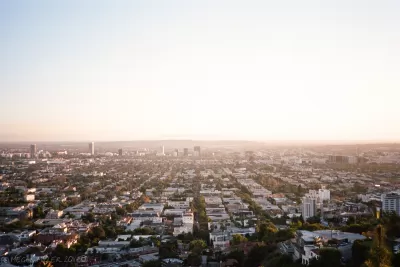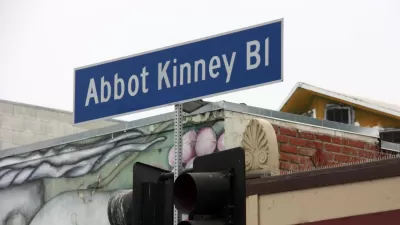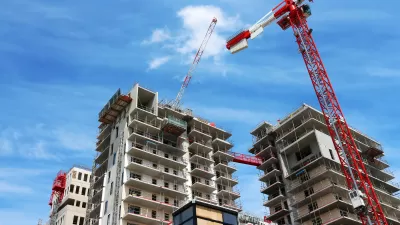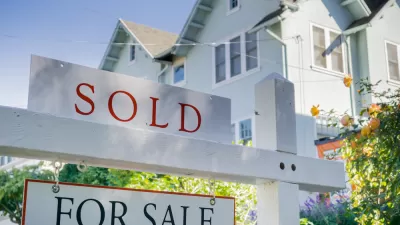As households with means seek to escape crowded apartment buildings and take advantage of historically low mortgage rates, average home prices of over $1 million are proliferating across the LA region.

An article by Andrew Khouri and Jack Flemming describes the white-hot California housing market, particularly the proliferation of million-dollar homes in the Los Angeles area. "It still requires financial strength to purchase such a home, but a surging stock market, rising incomes and historically low borrowing costs have made the $1-million house more common than ever."
While millions of households face high rent debt and the threat of eviction, "[h]igh earners are making, or at least saving, more money while grounded and working from home." Khouri and Flemming examine the forces shaping the pandemic real estate market and the proliferation of million-dollar homes across a broader geographic area. "As of July, there were 55 cities and unincorporated areas in Los Angeles and Orange counties where the 'typical' value of a single-family home was $1 million or more, according to a formula devised by online real estate company Zillow." Of those, 17 "crossed the $1 million threshold during the pandemic." With mortgage rates at historic lows, a growing segment of Californians can afford to buy more expensive homes–but low- and middle-income households are still being left behind.
Meanwhile, the types of homes that can be bought at this price has changed drastically. Of the 198 homes that sold for between $1 million and $1.1. million in 2021, "none is bigger than 3,000 square feet; 25 are less than 1,000 square feet."
Part of the price increase can be attributed to the number of investors seeking to buy homes to renovate or rent out, which has grown to 23 percent of LA County homes. "Most buyers, though, are still people looking to call a house a home. In a recurring Southern California trend, many find they must head east to achieve that dream, driving up prices in neighborhoods more affordable to them."
The rise in housing prices is a double-edged sword: "[a]s wealthier, often white, people move into Latino and Black neighborhoods that are predominantly low- and middle-income, longtime residents face displacement." But "Gina Fields, a Leimert Park resident and chair of the neighborhood council for the majority Black neighborhood, said the rise in prices is in some ways positive, as longtime homeowners build sizable generational wealth." Even so, Fields and other local residents worry that "Black Americans will lose their majority in a neighborhood they had to struggle to make their own to begin with." Fields says "she’d like to see more accessible loan products, more home-buying education and better job opportunities" to make it easier for Black families to purchase homes in their own neighborhoods.
FULL STORY: How the pandemic helped scatter $1-million homes across L.A.

Alabama: Trump Terminates Settlements for Black Communities Harmed By Raw Sewage
Trump deemed the landmark civil rights agreement “illegal DEI and environmental justice policy.”

Planetizen Federal Action Tracker
A weekly monitor of how Trump’s orders and actions are impacting planners and planning in America.

Why Should We Subsidize Public Transportation?
Many public transit agencies face financial stress due to rising costs, declining fare revenue, and declining subsidies. Transit advocates must provide a strong business case for increasing public transit funding.

Understanding Road Diets
An explainer from Momentum highlights the advantages of reducing vehicle lanes in favor of more bike, transit, and pedestrian infrastructure.

New California Law Regulates Warehouse Pollution
A new law tightens building and emissions regulations for large distribution warehouses to mitigate air pollution and traffic in surrounding communities.

Phoenix Announces Opening Date for Light Rail Extension
The South Central extension will connect South Phoenix to downtown and other major hubs starting on June 7.
Urban Design for Planners 1: Software Tools
This six-course series explores essential urban design concepts using open source software and equips planners with the tools they need to participate fully in the urban design process.
Planning for Universal Design
Learn the tools for implementing Universal Design in planning regulations.
Caltrans
Smith Gee Studio
Institute for Housing and Urban Development Studies (IHS)
City of Grandview
Harvard GSD Executive Education
Toledo-Lucas County Plan Commissions
Salt Lake City
NYU Wagner Graduate School of Public Service





























